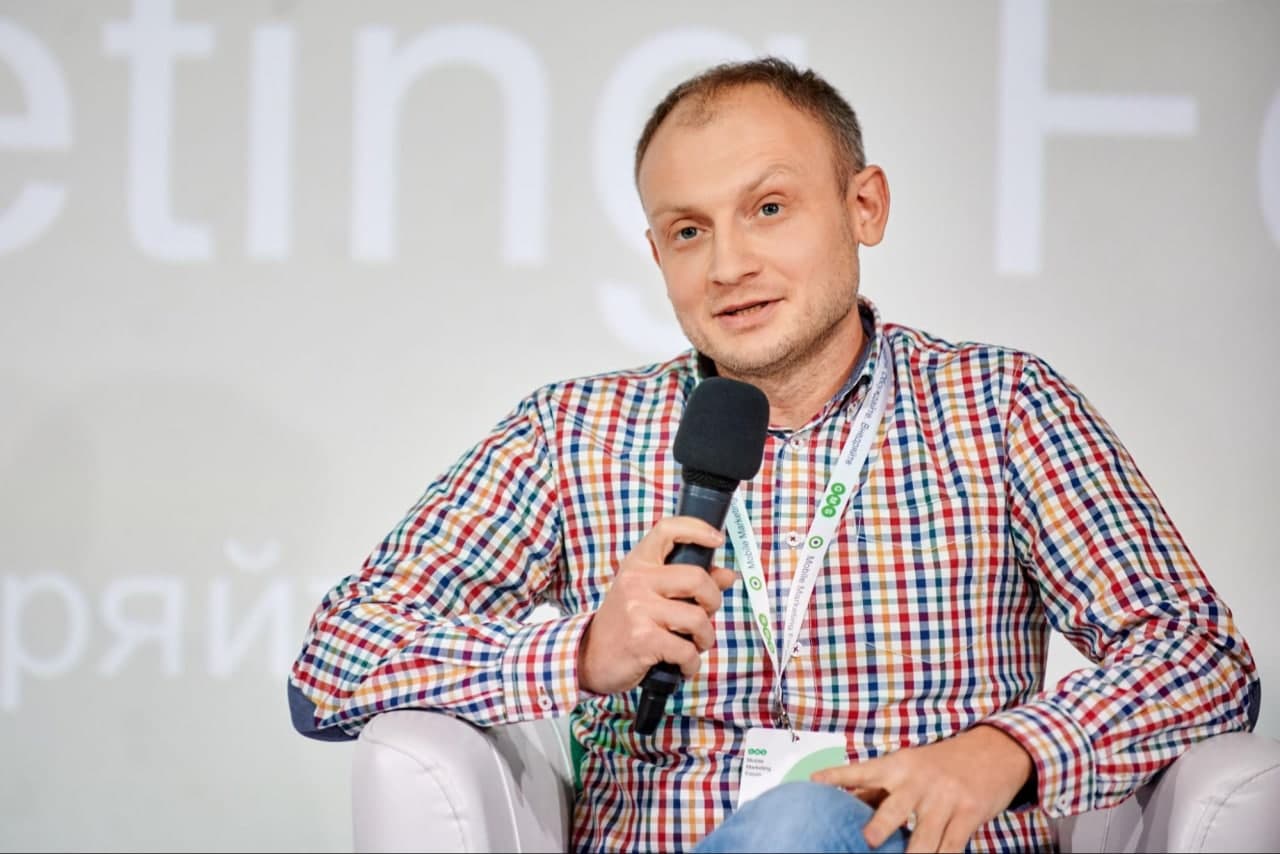Nikita Izmailov, N1 founder: “Asquad was created to make payment integrations in 1-2 days. We use Corezoid”
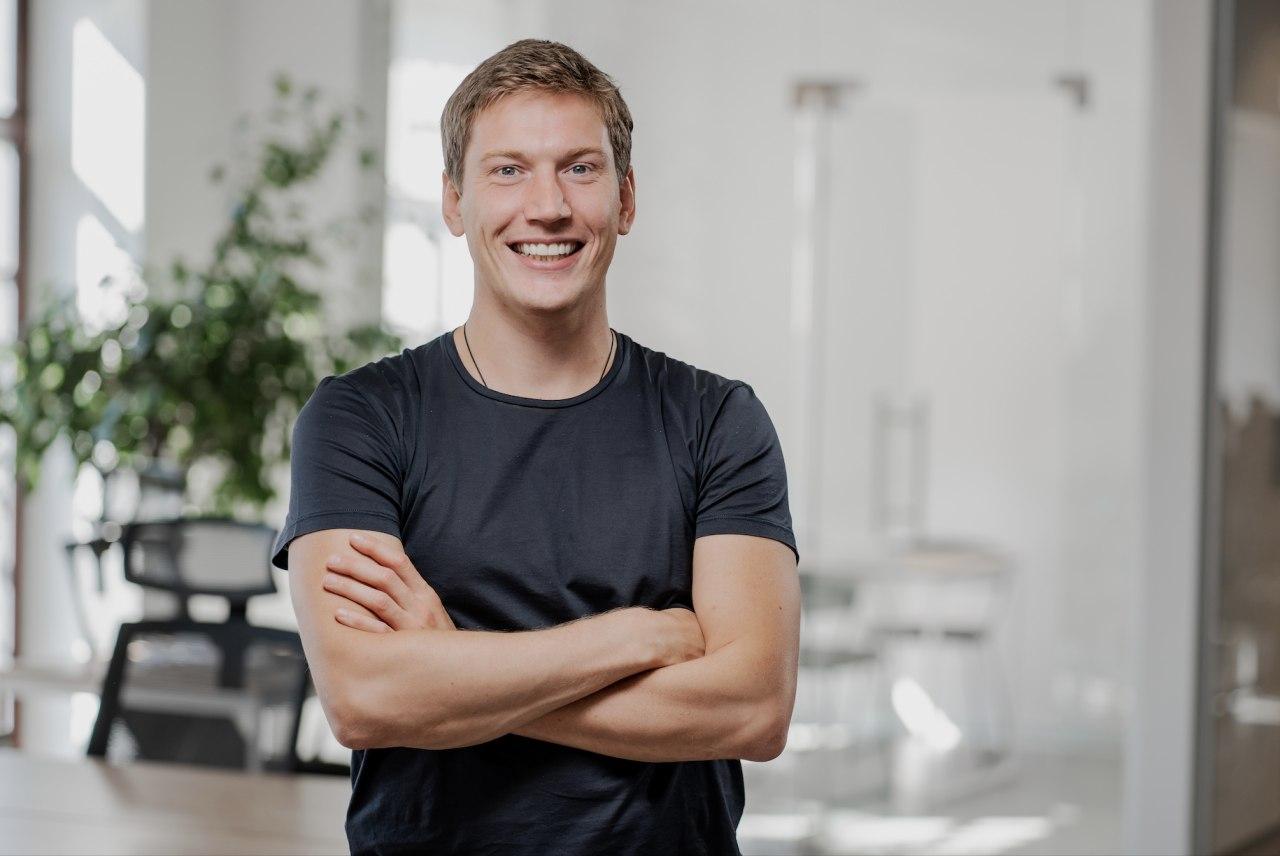 |
|---|
| Nikita Izmailov, N1 group founder |
Nikita, let's start from the beginning. Where did you study?
I studied at the Academy of Banking, the Department of Accounting and Auditing. I am an auditor by profession.
Why did you choose this profession?
I have a mathematical mindset. At the same time, I wanted to have a profession related to business. Now, as an investor, I can look at one slide, see 3 indicators and say: "Guys, you made a mistake."
When did You create Your first business?
During my sophomore year at the University, I created a satirical newspaper "Sumka". We had a circulation of 10,000 copies, issued every three weeks, 15 pages printed in color. It was even profitable at some point. However, I realized quickly that I couldn’t make a fortune out of a student newspaper.
My second business was related to the distribution of plastic windows. By the way, a professor from the University will come visit me today. This professor was also the owner of the factory that produced plastic windows. He supported my first business endeavors. Back then the professor hired a group of students who advertised the installation of plastic windows.
After graduation from University, I moved to Kyiv and for six months tried to get a job in the Big Four. I went to dozens of interviews with KPMG, Deloitte. At the same time I was selling furniture. I worked as a representative of a vine furniture factory and sold rocking chairs to Epicenter. I was making good money.
But most importantly, during this period I studied international accounting and auditing standards, which allowed me to eventually get a job at KPMG. I started climbing the career ladder very fast. It took me only 3 years to become a senior auditor. Usually people reach this point in 5-6 years.
Why would You give up running Your own business and join KPMG?
I had a lack of knowledge of how large business should work. I saw how business works in Sumy and in Kyiv. It didn't impress me at all. The option of working for a large international company seemed like a good next step.
What companies did you like as businesses?
Everyone was talking about Mars, Procter & Gamble.
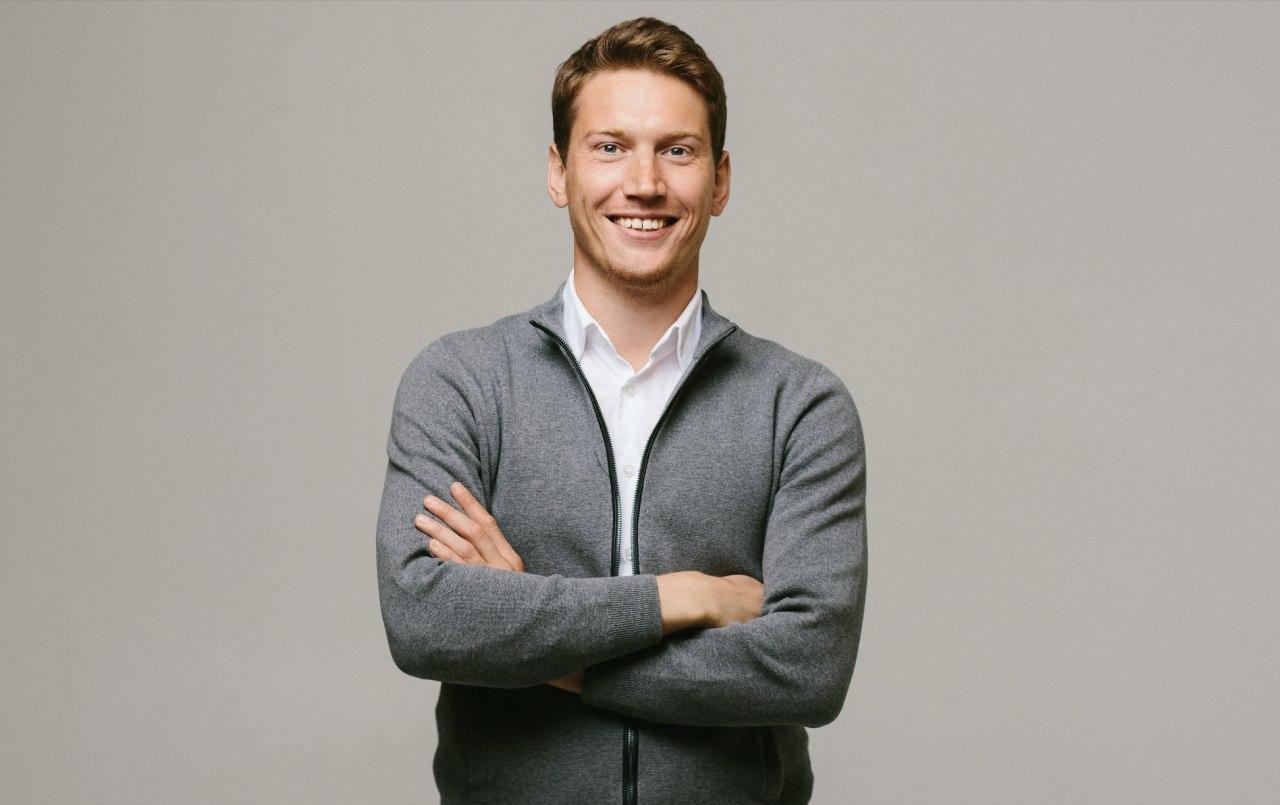 |
|---|
Did You want to start working for one of such Fortune 500 companies after a career in KPMG?
Yes. I realized that my skills would be a good fit for such companies. Eventually, I even got my position in Parimatch thanks to my background with KPMG. Parimatch was paying attention to potential candidates who went through the KPMG school.
How did you start working for Parimatch?
I was invited to the position of CFO. At that time, Parimatch had already been in business for more than 18 years. In fact, Parimatch was reinventing the company and young blood was needed.
What happened? Did You just get a call and the invitation to join Parimatch all of a sudden?
Sort of. Sergey Portnov and I had a mutual friend who worked at Parimatch. It turned out that we had common values and shared a similar vision.
So You gave up Your career at KPMG?
Yes. At KPMG my colleagues were cheering me up: “You are going to become one of the youngest Partners in the world”. On the other hand there were Parimatch founders, who put their faith in me. Such an approach and the credit of trust from Parimatch persuaded me to leave the bureaucratic world of KPMG.
What did you learn during Your work at Parimatch?
I learned how to create large legal and financial structures from scratch. When I came to Parimatch, the company had a single legal entity in Ukraine and one expired license. There was no way to accept or send payments online. The web-site existed more like an information panel. Yes, it was possible to make the bets online, but you needed to use money previously deposited as cash in the offline branch.
What have You accomplished over the years?
After 6 years of my work Parimatch is a structure that consists of 70 companies, operates 5-6 licences, works with 15-20 banks, supports 50 payment systems in more than 20 countries. Also Parimatch is an official partner of several great football teams.
How was the N1 company created?
At some point I realised that my expertise related to finance, payments, banking etc. needed to be separated from Parimatch. There are a lot of companies in the world who need similar to Parimatch payment solutions.
I agreed with my partners to make a spin off. And I started a separate business venture with fintech projects. It became clear that to manage such fintech projects, you need to create a managing company. This is how N1 company was created.
What does the name N1 mean?
This is my motivation to be number one. If I call the company number one, it means I need to work hard and live up to it.
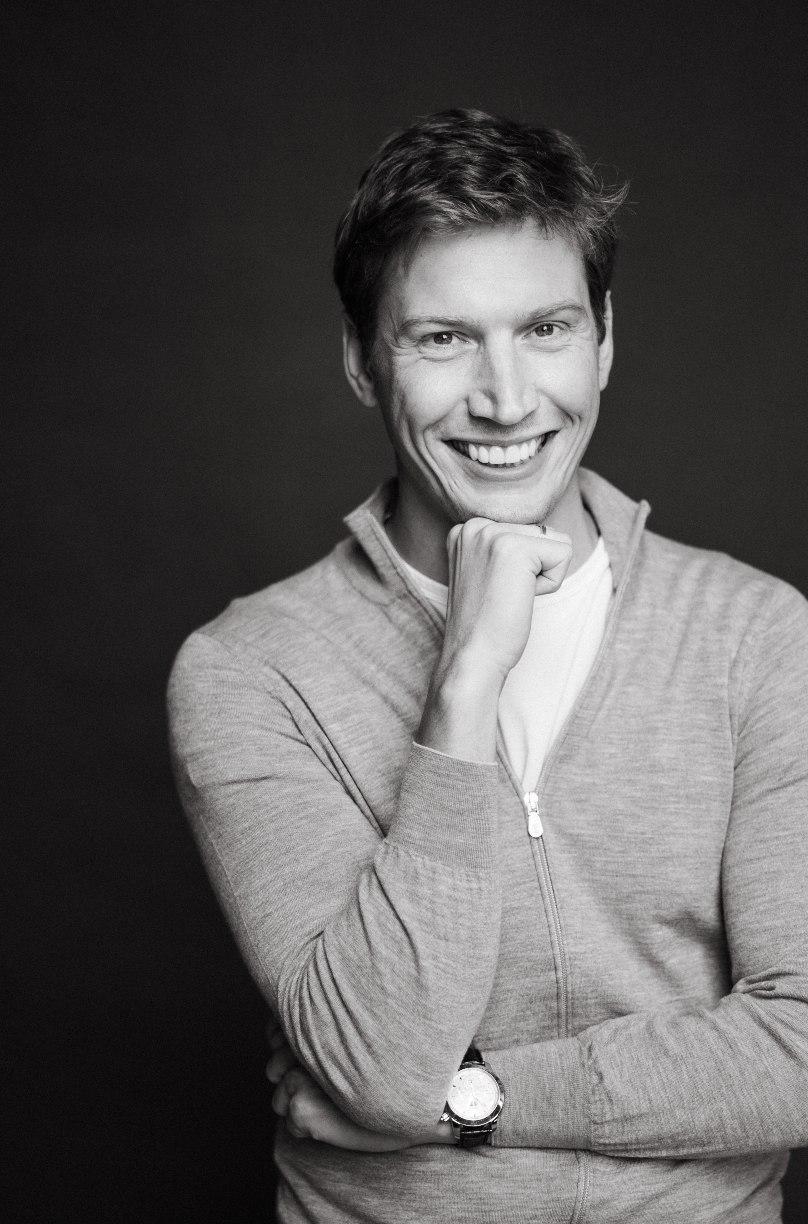 |
|---|
Was Asquad the first company in the N1 group?
No. Sportbank appeared first in 2018. Then Asquad did.
Alexey Kulik, the founder of Asquad, volunteered to solve the payments challenges of Parimatch. We had a vision that Asquad should become a technology company that would create fast and high-quality integrations in the field of payment solutions for the entire market.
Asquad was born from a seemingly unsolvable challenge to integrate payment solutions in 1-2 days and quickly conquer new markets.
We had a vision that Asquad should become a technology company that would create fast and high-quality integrations in the field of payment solutions for the entire market.
What technology stack do N1 companies use?
For me, the main thing is not the names of technology providers. I appreciate the commitment of my team to deliver the result. If Aleksey Kulik says that with Corezoid he can build integrations fast – this is what important.
Does N1 have plans to expand into global markets?
I believe that fintech can and should be profitable in Ukraine. But it is difficult for Ukrainian fintech companies to be sold for high prices. It is unrealistic to sell with a 10x multiplier to income, if you have Ukrainian clients on board, the management is located in Ukraine. Therefore, the only positive scenario for the Ukrainian fintech business is to be profitable and bring dividends. Therefore, for the next 2-3 years, N1 will have the following strategy: make money and invest profit into the further development of the company.
What factors play in favour of Ukraine?
The Ukrainian market is of little interest to global players. There are reasons why companies such as N26, Revolut have not yet embraced Ukraine. However, Kaspi announced it would start working in Ukraine. Kaspi opened a small Pandora's box. It means that the Ukrainian market will automatically receive the acceptance of the London Stock Exchange. That is, the country's risk will be accepted by LSE players (unless, of course, Kaspi shares price goes down).
If Kaspi manages not to lose its positions after entering the Ukrainian market, then this will be a good signal for investors. Serious investors might get interested in Ukraine.
Anyhow, in order to be a part of the big global game, You need to earn the capital first. Operating globally with small capital is not practical. I think investor should have at least $100 mln. to play big games on the global market.
What markets do you like?
I like the markets of the post-Soviet space, because I understand all the risks associated with them. I look curiously at the countries of Eastern Europe. They are located in the Eurozone, the population purchasing power is much higher than in Ukraine. At the same time, such major players as Revolut, N26, Monzo have not yet penetrated those markets. The quality of banking service is low there. Banks have a lot of legacy software issues, while customer expectations are high.
Would you consider emigrating somewhere to Eastern Europe?
There is no such need. Ukraine is the place where I want to spend most of my time.
What countries do You like for travel?
I like Italy. In winter I want to ski, in summer I want to swim, somewhere in the off-season - to walk near the lake, to meditate.
How do you like California, Silicon Valley?
Unfortunately, I am still far from California. I have not yet appreciated California either from an entrepreneurial or a technological point of view. I even set myself a certain barrier, a ban on serious thinking about California. It makes sense to go to Silicon Valley either to build a startup or work as an investor. For the latter You need to be at least an average size fish.
Who do you admire from modern entrepreneurs or funds?
Freedom Finance. They work in Kazakhstan, Russia, and they are opening a business in Ukraine now. Freedom Finance provides brokerage and forex services. The founder of the company Timur Turlov is a self-made man. Now he is in his 30s. Timur brought his company to NASDAQ. An ordinary hardworking Kazakh entrepreneur with a great vision. Freedom Finance is a motivating and stimulating example for me.
I don't want to mention some distant examples like Bezos, Musk. They are cool guys. But you have never talked to them. You do not understand what drives these people. Is it possible to call a person happy if he divorces for the second time in five years and has ten children with whom he does not even talk?
I admire one of the owners of ReFace – Sergey Tokarev. ReFace team invests a lot in the machine learning and artificial intelligence ecosystem in Ukraine. ReFace creates hubs, gathers people, arranges hackathons. This is not money driven, it is based on the desire to create something meaningful.
Do you have such a mission?
Yes. However, it is related not to fintech, but rather to healthy food and drinks. I have a company called Eat Easy. The company produces healthy organic drinks based on kombucha and tibicos. These drinks are practically sugar-free. If we compare it with cola, then there are about 10 tablespoons of sugar in cola. In our case, this sugar is almost completely processed by the mushroom. We are now producing 100.00 bottles per month. If we get close to 1 million bottles, we can compete with cola on price. My mission is to defeat the cola.
Imagine you look back at your life and think: “Wow! Good job. Thanks to my work people didn’t consume 1 billion tons of sugar”. Do You think that’s important?
Yes, absolutely.
How do you keep yourself fit? Do You go in for sports?
I dedicate 30% of my free time to sports. Usually I do a 3 hour workout every morning. The workout includes jogging, body weight work, stretching, and meditation. This is a daily complex that allows me to stay fit, and keep my brain working well.
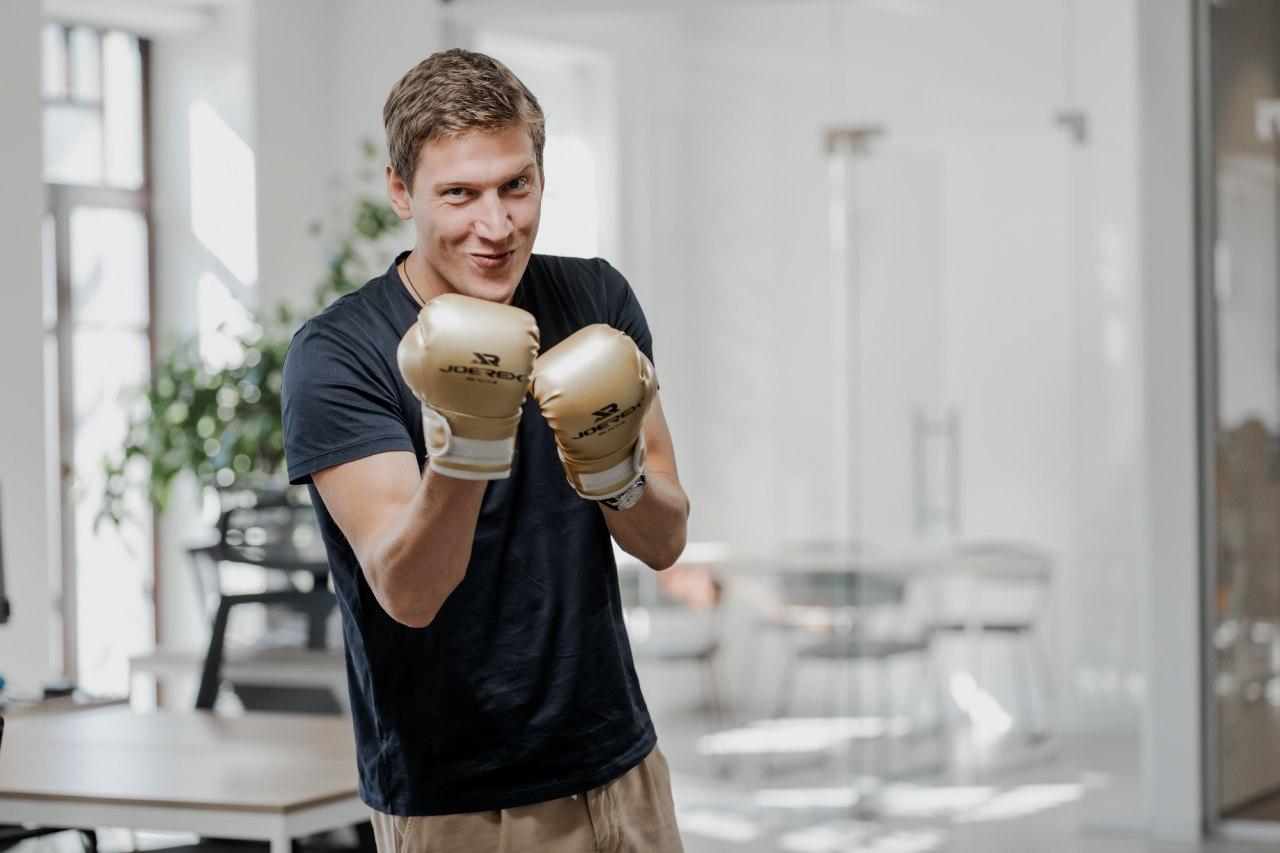 |
|---|
Where do you workout?
At home. It doesn't matter what part of the world I am, what the temperature is outside. Every morning from 5 to 8 or 6 to 9 I do the workout. I run a marathon once a month. I don’t eat fish, meat, I don’t drink alcohol.
Every morning from 5 to 8 or 6 to 9 I do the workout. I run a marathon once a month. I don’t eat fish, meat, I don’t drink alcohol.
Alexey, a question for you. Asquad belongs to the N1 group of companies. It was Asquad who first started using Corezoid technology in the N1. How was the Asquad company created?
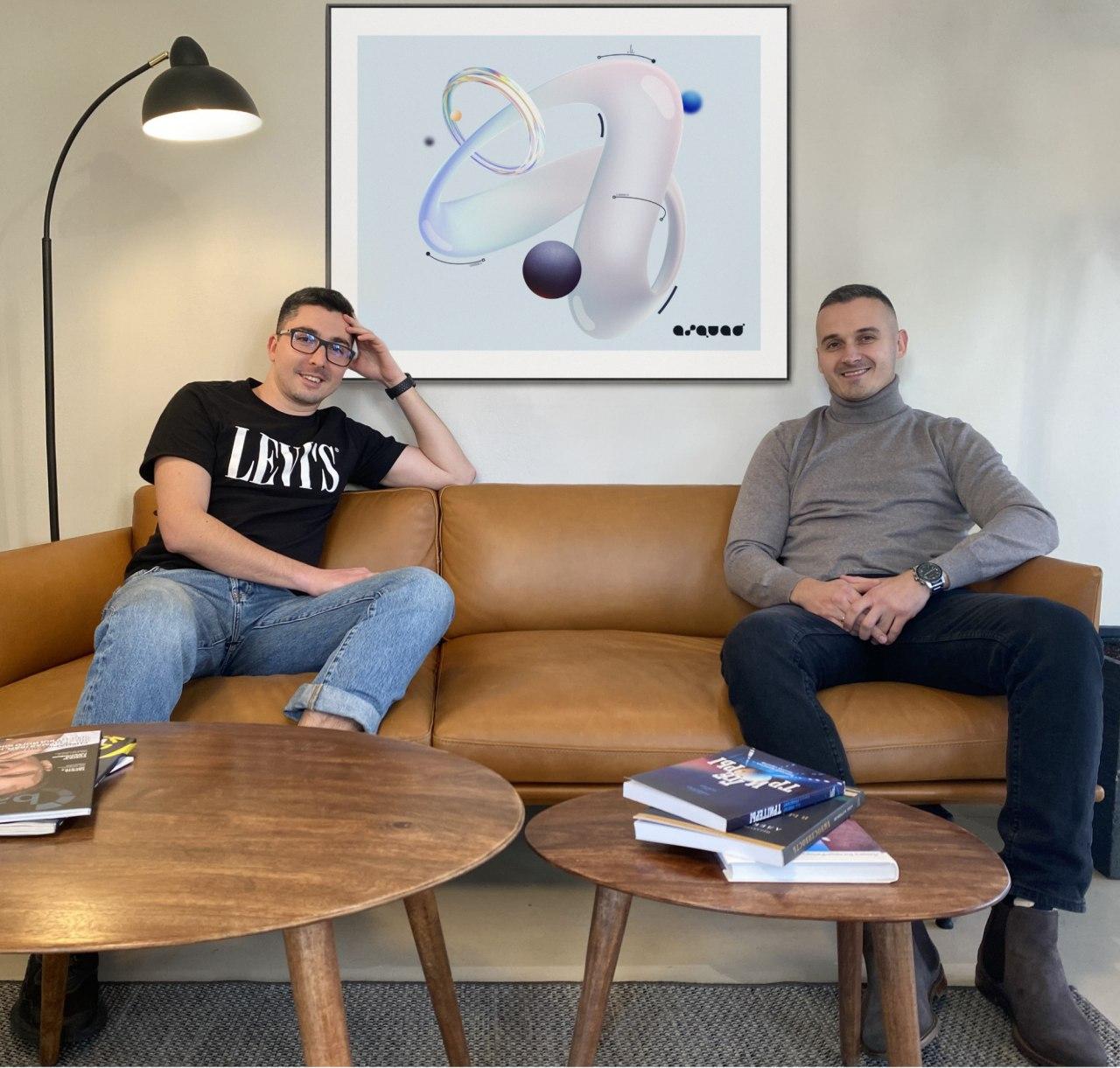 |
|---|
| Founders of the Asquad.io payment system Aleksei Kulyk and Stanislav Strebul |
Alexey: after 6 months of working with Nikita at N1 and talking to various projects from the fintech vertical I saw the same problem everywhere: the speed of integration of payment solutions. And I have known Corezoid for many years as a reliable and flexible technology.
At some point, I met with Stanislav for a coffee. I suggested to Stas that we create a new innovative payment system using the modern technology stack.
And I have known Corezoid for many years as a reliable and flexible technology.
Stanislav: Alexey said that we need to make a cool PSP (Payment Service Provider). I didn't want to get involved in such a project, because I knew that it was hard. For about half a year, we periodically communicated with Alexei. He asked me to help audit one of the PSPs.
In parallel, we discussed Corezoid as a technology. I remember the beginning of COVID pandemic. Everyone was terribly afraid of this virus, and got isolated. I went to the village, walked along the street, the dogs barked, and I called Alexei and said: “I’ve done some research. You can build fantastic things with Corezoid!”
I went to the village, walked along the street, the dogs barked, and I called Alexei and said: “I’ve done some research. You can build fantastic things with Corezoid!”
What customer problem does Asquad solve?
Alexey: speed.
Could You give more details, please?
Alexey: for seven years my experience has been associated with building projects in the fintech market. Based on this, I have reason to believe that I know where this market is heading. Most large companies have legacy code, monolithic systems. And at the same time there are ambitions to innovate, scale to new markets, accept payments in different ways.
New markets mean new integrations, which means having an army of developers inside the company. There are companies whose billing departments employ more people than niche payment companies. There are just departments that deal with integrations, analysis of payments, etc. and they have 50+ people. Each new integration is a pain because it affects the product, the business model, and sales.
How does Asquad solve this problem?
Alexey: all payment systems solve the same problem: you need to accept and send payments. The problem is the speed of reaction to the changes in the payments landscape.
We tell Asquad clients: “Focus on core business expertise. And we will provide you with a high-tech product for working with payments, which can be easily managed and quickly scaled.”
We tell Asquad clients: “Focus on core business expertise. And we will provide you with a high-tech product for working with payments, which can be easily managed and quickly scaled.”
Stanislav: Corezoid allows you to quickly capture new markets. According to the old approach to software engineering, You need a developer, who will study the documentation, write the code, test it, bring it to some pre-production environment, where someone else will test it again, and then the code goes to production.
Imagine suddenly it turns out that the bank API is not responding in the way we expected. Or a certain parameter of Visa or Mastercard card must be included in the payload for certain countries. And You need to start all over again.
Corezoid helps to speed up the solution of integration challenges.
Alexey: Large companies often have a list of 10-15 integrations that they cannot complete even with a large number of developers. Ideally, one integration takes 2-3 weeks, but there are flows that take 3-4 months, and this is a very painful process. I’m talking about constant iterations and rollbacks because of one little thing. Also remember that integration work is often performed by expensive niche payment specialists.
Asquad is a payment platform with a unique integration layer that is aimed at solving integration challenges. Thanks to Corezoid technology we reduce the time for any integrations for the client. For example, we made one of the last integrations with the bank in 12 hours.
This is what we strive for: any payment integration must be done in one day. We have a slogan inside Asquad: “One integration – one day!”
This is what we strive for: any payment integration must be done in one day. We have a slogan inside Asquad: “One integration – one day!”
What are your plans for the development of Asquad company?
Alexey: there are 2 areas that we want to develop on the basis of Corezoid - our own processing center, and the SaaS model for large and medium-sized companies.
Asquad customers are companies that want to accept payments online?
Alexey: Yes. Sometimes they already accept payments online. The question is, how do they do it. Many companies do not have the expertise to develop their own system and are looking for a white label solution to start using.
Are you starting with the Ukrainian market?
Alexey: Yes. We have already started working in Ukraine. The first customer is a company from the N1 Group. Recently, we have been testing Asquad's performance, checking the stability of the platform. Asquad has a modern technology stack under the hood, including Corezoid. I don’t think there is something like Asquad on the market today.
Asquad has a modern technology stack under the hood, including Corezoid. I don’t think there is something like Asquad on the market today.
Please give an example, when you quickly solved a problem using Corezoid?
Stanislav: recently we made an integration, launched it into production and a case happened that we could not take into account, since the information was missing in the documentation. I logged in to Corezoid and I saw that 400 transactions accumulated in a queue. I quickly figured out what was the matter, made another branch of logic and fixed the problem “on the fly”.
If we compare this case with the classic approach to software development, it would require preparation of stages, rolling a hotfix, involving a team of release engineers and testers, and this could have taken days to solve.
